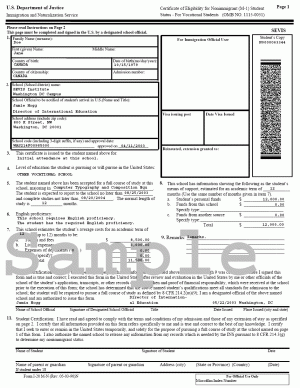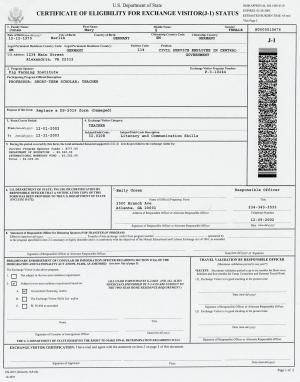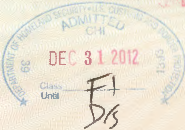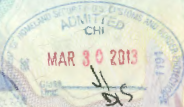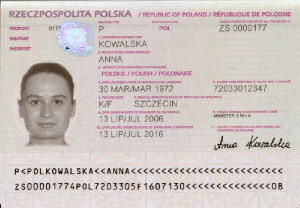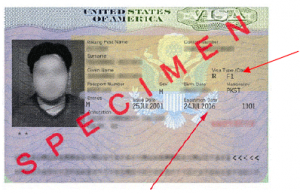Maintain Valid Documents
While you are a student, you are required by law to keep all of your immigration documents up to date. This may mean working with OIA before changes occur or applying for updates documents from the proper authority. Keep copies or scans of previous immigration documents!
It is common practice for agencies to ask for all previously issued immigration documents when you apply for a new immigration status. This is especially the case with work statuses (such as H-1B) and Permanent Residency. In most cases, OIA cannot provide copies of previously issued immigration documents, so it is important to make sure you keep copies of everything for yourself.
To maintain your F-1/J-1 status, you must keep the following documents up to date:
I-20/DS-2019
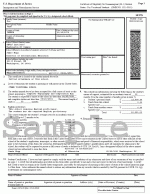
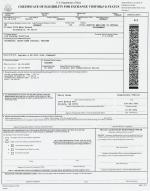
The I-20/DS-2019 establishes your legal presence in the U.S. and must accurately reflect your program and biographical information. You must keep OIA aware of any changes to the information on this document, including:
Program Start/End Dates
If you will not finish your program of study by the date indicated on the document, contact OIA about an extension prior to this expiration date. We cannot extend an I-20/DS-2019 after the end date. See the program extension page to find out how to extend your program if you will graduate later than expected. If you will finish studying earlier than expected, you must also shorten your record.
Changes to Biographical Information
If you have a legal name change or have changed citizenship, you must submit a copy of the new passport showing your name, so that we can change it on your I-20. We can only accept a passport to make these changes. The changes we make will apply to your I-20/DS-2019 only. We cannot make any changes to your name as it is displayed on your academic or Registrar record. If you would like to change your name on your academic record, you will need to follow up with the Registrar/your department separately.
Changes to Academic Program or Degree Level
If you will change academic programs or degree levels, you must inform OIA well ahead of any changes.
Grace Period Following your I-20/DS-2019
After your I-20/DS-2019 end dateF-1 students have a 60 day grace period and J-1 students have a 30 day grace period to leave the U.S., transfer your SEVIS record to a different institution, depart the country, or change to another status after your program is completed. The grace period is automatic and will not be notated on your I-20/DS-2019 or any other document.
Lost/Damaged I-20/DS-2019
If you lose your I-20 or DS-2019, you can request a replacement document as a walk-in service by stopping by OIA during our business hours and requesting a re-print from the front desk.
Admission Stamp & Electronic I-94
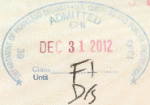

When you are at the port of entry the officer will place an admission stamp in your passport and then write the visa status you are being given (F-1 or J-1) and the expiration date of your entry. For students in F-1 or J-1 status the expiration is noted with "D/S" which stands for 'duration of status'. This means that your entry will be valid as long as your status is valid. Always check your stamp before leaving the CBP desk. If your stamp shows the incorrect status or a specific date instead of D/S, request your stamp be corrected. In the event this is not possible, please contact OIA the next business day.
Getting a Copy of your I-94 Record
When you enter the country, an electronic record of your admission, known as the I-94, will also be created. You can retrieve a copy of your I-94 by visiting the CBP I-94 look-up website.
Passport or Travel Document
 You must keep your passport valid at there must be at least 6 months of validity remaining at all times. Your passport does not need to valid for the entire duration of your academic program. Rather, at at any point in your studies, your passport should have at least six months of validity remaining on it. If your passport is going to expire before your program ends, you will need to apply for a new passport during your program. Be sure to plan ahead to renew your passport. Many students can renew their passports inside of the U.S. with their home country's consulate or embassy. Contact your embassy for more information.
You must keep your passport valid at there must be at least 6 months of validity remaining at all times. Your passport does not need to valid for the entire duration of your academic program. Rather, at at any point in your studies, your passport should have at least six months of validity remaining on it. If your passport is going to expire before your program ends, you will need to apply for a new passport during your program. Be sure to plan ahead to renew your passport. Many students can renew their passports inside of the U.S. with their home country's consulate or embassy. Contact your embassy for more information.
Getting a New Passport, Valid Visa in Old Passport
If you have to get a new passport but still have a valid visa in the old one, retain the old passport and travel with both the new and old passports together. You can to continue to use your valid visa in your expired passport in combination with your updated passport, as long as 1) they are both in the same category (e.g. both ‘regular’ both ‘diplomatic’, etc), and 2) there are no significant changes (e.g. name/biographical changes). Usually, the consular officer will glue or staple your old and new passport together, so you can continue to use your unexpired F-1 visa and use your new passport. If your visa has expired or is in a different type, you will need to apply for a new visa.
Passport Updates and Passports Renewals
During your studies you may need to renew your passport. Unless there is a change to your biographical information (i.e. your name is different from your current I-20/DS-2019), you do not need to update OIA with the change. You may need to update other entities, such as your employer. Make sure to follow up with your employer or others, as needed.
Entry Visa
 An entry visa is put in your passport at the U.S. consulate for the purpose of entry into the United States. Your visa can expire while you are in the U.S., because your visa is only an entry document does not have an impact on your status. See our "Visa vs. Status" for more clarification on this point. However, if you travel internationally you will need a valid visa to re-enter the U.S. and you can only renew your visa abroad. Please note that Canadian citizens do not need U.S. entry visas. See our travel page for more information on visas.
An entry visa is put in your passport at the U.S. consulate for the purpose of entry into the United States. Your visa can expire while you are in the U.S., because your visa is only an entry document does not have an impact on your status. See our "Visa vs. Status" for more clarification on this point. However, if you travel internationally you will need a valid visa to re-enter the U.S. and you can only renew your visa abroad. Please note that Canadian citizens do not need U.S. entry visas. See our travel page for more information on visas.
Visa Validity and Arrest Records
If you have had a U.S. arrest or conviction for a crime in the U.S., including driving under the influence of alcohol or driving while intoxicated, it is possible that your visa has been revoked without you being aware of it. If you are in this situation, contact the embassy/consulate where you received your visa to check its validity. If it has been canceled or revoked, contact OIA and we can also assist you in finding a reputable immigration attorney, if the need for such services were to arise. See the OIA news article additional information.

